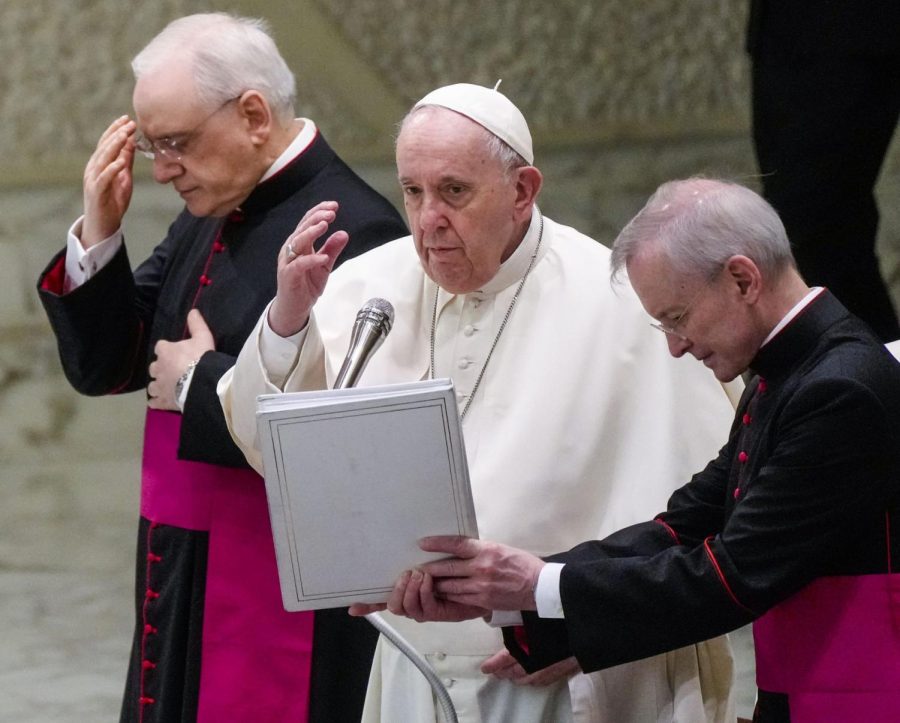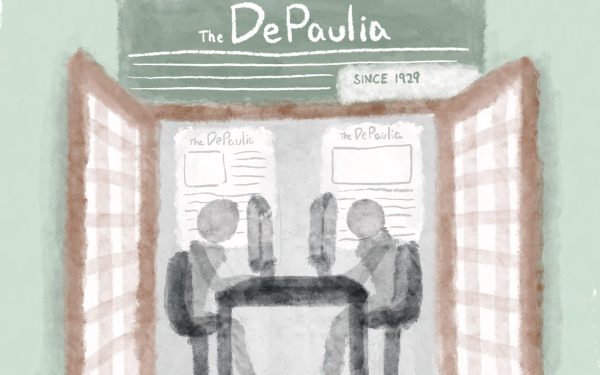Opinion: The Pope is wrong about childless couples
Pope Francis blesses the attendance at the end of his general audience in the Paul VI Hall.
Pope Francis made an eye-opening statement saying that couples who opt to have pets instead of children are selfish. According to the Pope, this decision contributes to decreasing birth rates and “takes away our humanity.”
What the Pope seemingly fails to understand is that parenthood is a calling. Chances are, people are not going to have a good, or any response to that calling. Parenting needs to come from a place of readiness, not obligation.
The Pope’s primary goal was to encourage people to consider adoption, especially if they have resources or are unable to have a child naturally. The language of selfishness is really difficult for people to hear, and in many ways, might have clouded the larger message of what Pope Francis said.
DePaul Catholic Studies professor Jaime Waters said that part of the Pope’s message about adoption could be easily overlooked or missed.
“I would say that the larger context of what he said is really important,” Waters said. “The purpose of his speech had to do with adoption, trying to use the figure of Joseph.”
The Biblical figure that Waters is highlighting is the adoptive father of Jesus who serves as a strong example and a reminder of the important role that adoption — and parenting — plays in society.
But a couple’s decision whether or not to have children does not make them intrinsically more or less selfish than another. Another layer in the onion that should be peeled back on whether or not people should have children is the topic of the “demographic winter” in Europe. This term describes how the birth rate among many European countries is below the rate of replacement.
“It means the population is shrinking, because people aren’t having children. And it’s referred to as the demographic winter,” Depaul Catholic studies professor William Cavanaugh said.
In some predominantly Catholic countries such as Spain and Italy, the population is actually shrinking and growing much older. This has potentially serious economic implications, including a shrinking workforce and increased care costs for older citizens. Francis’ advocacy for having children was at least partially influenced by this trend.
Not everyone will have a good, or any response to the calling of parenthood. Countries such as Luxembourg, Iceland and Sweden offer a much more substantial quality of childcare policy as opposed to countries such as France, Belgium, and Germany.
The Pope’s commentary has also garnered criticism for a lack of support for single parents.
“The financial pressures are greater, the emotional pressures are greater, the inability to have time for yourself is greater,” said DePaul religious studies professor Scott Paeth. “And if you don’t have the social safety net to cope with that as a couple, then if you don’t have it as a single person, it becomes that much more of a burden.”
An important takeaway for many is listening to people’s experiences from all backgrounds and belief systems. Ask them about the struggles they are facing, what support they need and how their needs can be addressed. Those important questions, and the even distribution of resources, from improvement of healthcare to quality of education, is a clear compass to determine the appropriate response to couples who choose whether or not choose to have children.

















